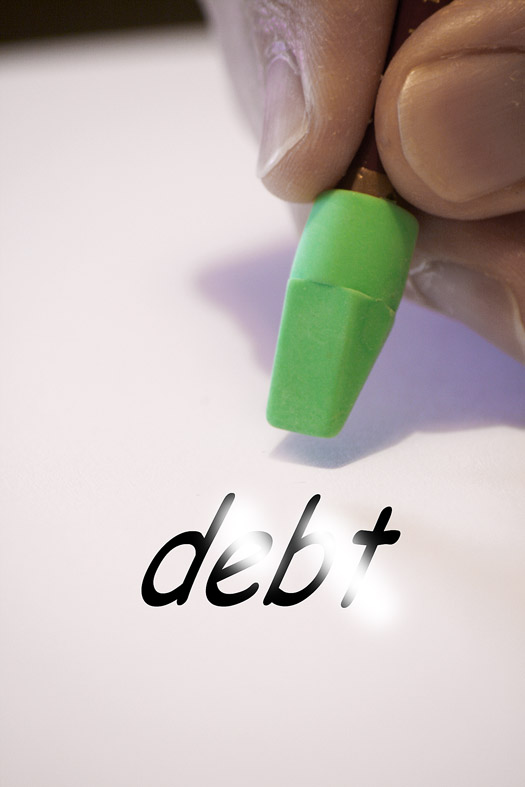It’s important to remember that not all debt is bad and that most people owe at least one creditor. Maybe you took out a student loan to attend college, or perhaps you financed a car or house. In these situations, getting a loan is practically the only way to get what you need – and some experts view these as “good debt.”
But although there are “good” and “bad” debts, owing a lot can have costly consequences. Rather than thinking of debt as simply the American way, make sure you fully understand the costs of carrying a balance.
1. Lower credit score
Your FICO score is directly tied to your debt. A student loan, mortgage or auto loan won’t typically damage your score – unless you stop paying the bill. However, the same doesn’t apply to credit cards.
Credit cards are revolving lines of credit. Since approximately 30 percent of your credit score is based on how much you owe, if you have several credit cards with high balances, your personal score will take a hit. Yes, you may pay your bill on time each month – and the fact that you’re timely helps your score. But as long as you carry high balances, you’re missing out on a higher score.
To benefit the most from credit cards, keep balances at less than 30% of your credit limit, and pay off the card in full each month. If you can’t get a handle on your balances, maybe you can benefit from debt relief.
With the help of debt consolidation or another relief strategy, you can “start saving money and make your life easier,” says Accredited Debt Relief, a company that develops these types of strategies for those struggling with their payments and financial obligations.
2. Flushing money down the toilet
There’s a cost to using credit cards and it’s called interest. Have you ever calculated how much interest you pay in a month or year? If you have high credit card balances and you’re paying a high rate, the figure might make you sick. This is how credit card companies make their money; if you carry a balance from month-to-month, interest charges are added to your balance.
The more you pay in interest, the harder it is to pay off your cards. But if you pay off your cards and start paying balances in full, you can avoid new interest charges.
3. Reduces buying power
If you apply for a loan, the lender will check your report to see how much you owe elsewhere. Having a credit card balance and other debts might not stop a loan approval, but it may affect how much you qualify for.
A high debt to income ratio is the kiss of death when applying for a mortgage loan and other types of financing. For example, you may need a mortgage for $200,000, but based on your current debts, the lender may decide that you can only afford $150,000.
Getting smart about debt and working to pay off balances can remove a dark cloud and give you peace of mind. There is no secret or overnight trick to debt elimination. It’s a slow process that requires sacrifice, patience and a strategy. So get organized, and take your money back!

